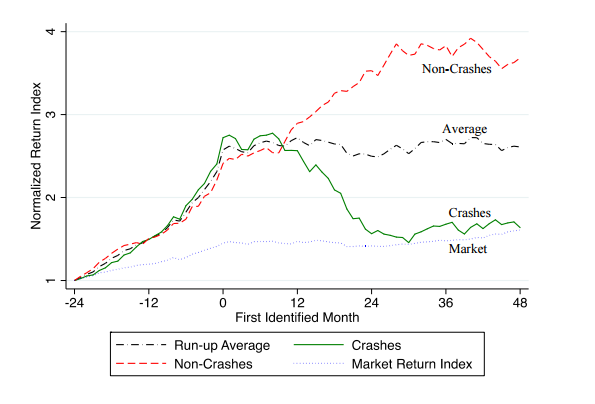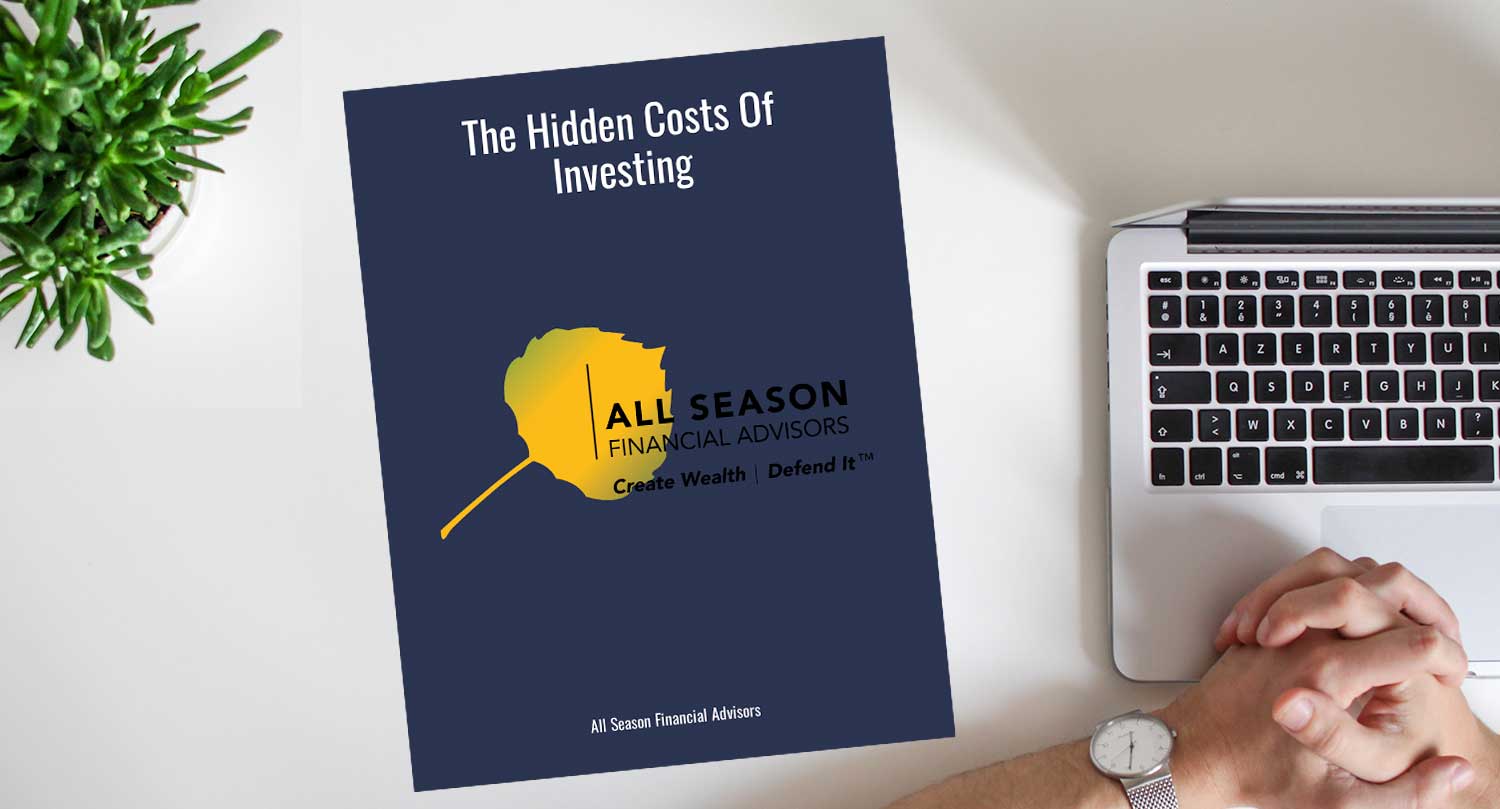I really hate click bait and I apologize for that title. But it’s time to pay attention again. Trends in the financial markets are really accelerating so this is the time to open our minds and let things happen as they are without applying assumptions or perceptions about the future. A “melt up” in stock prices has been in place since last September despite just making the headlines now. I’ll finish with a refined amendment to Jonathan Clements’ smart piece in the Humble Dollar, “Best Investment 2018” written on 12/30/2017. Settle in.
What is a Melt Up?
For those who weren’t investing or conscious or born yet, the late 90’s was a time when the US stock market experienced a wild Melt Up. The move began in early October 1998 and ran near vertically into mid-March 2000. Let’s call it 18 months.
During that short time the S&P 500 gained 50{1de7caaf0b891e8de3ff5bef940389bb3ad66cfa642e6e11bdb96925e6e15654}, the Nasdaq Composite gained 222{1de7caaf0b891e8de3ff5bef940389bb3ad66cfa642e6e11bdb96925e6e15654}. Even our own risk managed Worldwide Sectors strategy made almost 90{1de7caaf0b891e8de3ff5bef940389bb3ad66cfa642e6e11bdb96925e6e15654}. Yes, that happened and it appears to be happening again now, roughly 17 years later. This move began in September by my estimation. That was the time when the markets could have buckled but instead shot higher and have been moving vertically higher in a near lockout environment for anxious “me too” investors. Melt Ups happen when there is a shift in mass psychology that is finally more accepting of a positive outcome given all the broadcast bullishness. It’s a time when investors, market gurus and those with a seemingly permanent bearish bias, just simply capitulate to the obvious trends that have been in place for many months, even years. In fact, capitulation buying only shows up after years and years of rising prices and disbelief. There’s a reason they say that a Bull market climbs a wall of worry. That is, until that sense of worry disappears. That is where we are today. No worry, just pure unbridled optimism about the future of stocks, the market and our economy. Of course, this is the hallmark, the very calling card, of the end of the bull market – give or take 12 months! So yes, a melt up is and has been in the works now since the fall. We have been all in as they say with less than 5{1de7caaf0b891e8de3ff5bef940389bb3ad66cfa642e6e11bdb96925e6e15654} cash in all but our bond models and making some very handsome gains.
Stocks Are Shiny Objects Again
How high can this go? I have no idea, no one does. The students of past bubbles know that it can go much higher than you think, much, much higher. On the way into work today, I heard three brokerage firms raise their year-end price targets for the S&P 500 to somewhere in the high 3000’s. That’s nearly 35{1de7caaf0b891e8de3ff5bef940389bb3ad66cfa642e6e11bdb96925e6e15654} higher than today. If our starting point for the current melt up was, in fact, September, we’ve already seen a gain of 15{1de7caaf0b891e8de3ff5bef940389bb3ad66cfa642e6e11bdb96925e6e15654}. Adding 35{1de7caaf0b891e8de3ff5bef940389bb3ad66cfa642e6e11bdb96925e6e15654} to the current gain would ironically put us right on track with the last 18 months of the bull market into 2000 when the S&P 500 added a clean 50{1de7caaf0b891e8de3ff5bef940389bb3ad66cfa642e6e11bdb96925e6e15654}. I don’t expect that outcome this time but it’s interesting to see the patterns match up. Human behavior is the only constant in the financial markets as we’re really just monkeys that like shiny objects.
How Does A Melt Up End?
Badly… Always
Selling pressure among institutional money managers rises with prices in every market. But in a melt up, the actual selling is put on hold as they, (like us), recognize the powerful potential of a melt up market. They literally ignore their short-term sell signals as they should and it becomes a pure game of chicken. You can imagine what happens when it finally turns and it becomes a death match to see who can take profits the fastest. The market top comes out of thin air with no reason whatsoever. Statistically, once the top is in, we see at least one month early in the decline that exceeds -20{1de7caaf0b891e8de3ff5bef940389bb3ad66cfa642e6e11bdb96925e6e15654}.
Ben Carlson of a Wealth of Common Sense did an excellent podcast yesterday talking a lot about the glory and gore of “melt ups” in the past. It’s a good one.
http://awealthofcommonsense.com/2018/01/animal-spirits-episode-12-the-melt-up/
How To Play It?
Well, this is a tricky answer because a lot depends on who you are, your temperament and your investment strategy. I’ll sidestep and avoid a really detailed answer but offer this. We’re in a global stock market environment that is accelerating to the upside. Gains are accumulating at eye-popping rates on a weekly basis. Finding new entry points into this type of market is nearly impossible so my best advice is: don’t try. Hold what you have and I hope you have a lot on the table as we do given the clear evidence since last fall. Put your politics and your assumptions away and just pay attention to leadership. If any of your positions turn down and break trend while the markets are moving wildly higher, sell them to cash and leave it there. Gradually you’ll find yourself with a heavier cash position as prices rise and some of your positions do not. That’s a good thing but it takes a lot of discipline not to reallocate and chase something that has already run.
I would also continue to focus on value. There is a lot of value in the market today. If you must buy anything, look at the banks, energy, airlines, small cap value, mid cap value, materials, industrials, oversold consumer stocks and healthcare. Tech is everyone’s favorite and I don’t love it anymore, but again, hold what you’ve got because it’s all ripping higher.
Finally, I would make sure that your risk management system is well oiled and working properly. If you don’t have a risk management system that identifies when selling pressure shows up and prices have topped, you need one. That’s what we do, so feel free to call us as well. Our Lighthouse Project is an excellent option for those who are feeling exposed. See the commentary from Alex Osmond, CFP in this update on the Lighthouse Project. I stand by my fearless forecast of the year. We will see at least one decline of at least 12-15{1de7caaf0b891e8de3ff5bef940389bb3ad66cfa642e6e11bdb96925e6e15654} in the next 12 months (hint it won’t stop at -15{1de7caaf0b891e8de3ff5bef940389bb3ad66cfa642e6e11bdb96925e6e15654}).
The Best Investment of 2018 – Amendment to Jonathan Clements’ piece.
First, take a look at Mr. Clements awesome advice at the end of last year.
http://www.humbledollar.com/2017/12/best-investment-2018/
The basic advice is pretty simple. Jonathan recommends paying off your mortgage as one of the best “investments” one can make in 2018. The concept is that the new tax rules are going to make mortgage interest less attractive for most as they won’t use that expense as a deduction anymore, choosing instead to take the higher standard deduction. Therefore, we should increase our net income after taxes by paying down, or paying off our mortgages and increase our income after the standard deduction. For many, that might be a good investment if we are looking at higher income as the objective. But from our perspective, every financial choice is one of relativity. And from that perspective, paying down your mortgage doesn’t make much sense relative to other investment options, current rates of return outside of certain situations. So I’m going to take Jonathan’s advice and amend it to show you where it does make sense.
Don’t sell stocks to pay down your mortgage. This much is obvious to me even if I factor in the risks of a bubble market, melt up and massively overvalued stocks. If one does stocks well, one can make a pretty conservative 7{1de7caaf0b891e8de3ff5bef940389bb3ad66cfa642e6e11bdb96925e6e15654} over time and that’s a lot higher number than the rate on your mortgage (say 3.5{1de7caaf0b891e8de3ff5bef940389bb3ad66cfa642e6e11bdb96925e6e15654} on average). Furthermore, if stocks do crack and head lower, you can always sell them. Housing isn’t so liquid as many discovered between 2007 and 2012. Paying down a mortgage is the same as adding money to your house bucket and that money is pretty solidly illiquid thereafter. Of course, real estate can fall and just as hard as stocks. We all know that now right?
What about cash? If we have cash sitting idle in the bank earning nothing and our mortgages still cost 3.5{1de7caaf0b891e8de3ff5bef940389bb3ad66cfa642e6e11bdb96925e6e15654} / year, wouldn’t that make sense? Well, I could argue that a person who is in their working years with a healthy job, a decent savings and investing plan for discretionary income should continue to regularly add to more productive investments, like stocks or even income producing securities that pay more than your interest rate on the mortgage. There are many things paying higher than 3.5{1de7caaf0b891e8de3ff5bef940389bb3ad66cfa642e6e11bdb96925e6e15654} including many dividend paying stocks! Now if you have a huge crushing mortgage with interest expenses annually close to $24,000 and a giant unproductive bank account of cash, you could certainly reduce your mortgage.
But here’s the real sweet spot for those wanting to entertain Jonathan’s advice. If you are retired, with no replacement income and have either cash or unproductive bond holdings, it probably makes sense to pay down your mortgage as you can afford to do so. You are past the time in your life where you are adding regularly to your investment accounts so cash just tends to sit for long periods of time in unproductive bank products. Your bond holdings are dead money from a return perspective for the next 4-5 years at least. And you should be constantly looking for ways to reduce your cost of living. In these situations, paying down your mortgage could be one of the best, zero-risk, investments you can make.
For the rest of us working stiffs, we’ll look back on these days with rates sitting at 3-4{1de7caaf0b891e8de3ff5bef940389bb3ad66cfa642e6e11bdb96925e6e15654} and wonder why we didn’t take on the biggest loans of our lives.
That’s all the insight I have for today. Enjoy the melt up!
Cheers
Sam Jones


